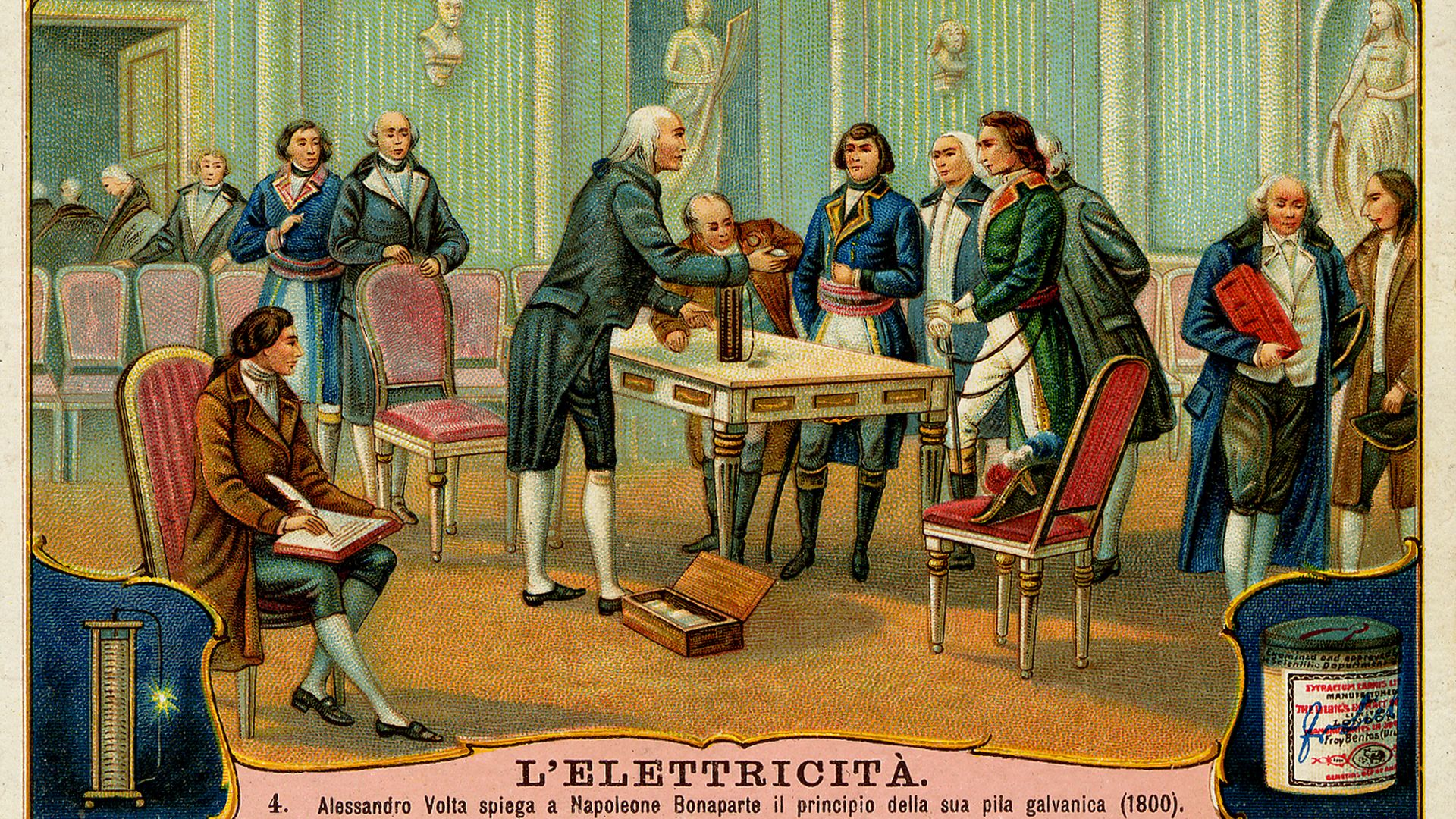Sep 4, 2018 - Energy & Climate
Amid frustration, battery startups claim reason for hope
Add Axios as your preferred source to
see more of our stories on Google.

1801: Alessandro Volta presents his invention — the battery — to Napoleon. Photo: Hulton Archive/Getty.
